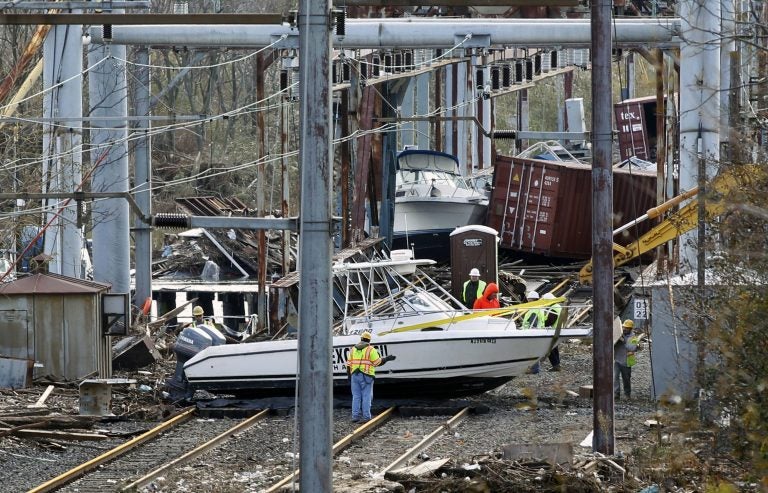On Sandy anniversary, Murphy announces new climate change initiatives
Resilience program will seek to make New Jersey better prepared for the next huge storm to make landfall.

In this Oct. 31, 2012 file photo, workers try to clear boats and debris from the New Jersey Transit's Morgan draw bridge after surge from Sandy pushed boats and cargo containers onto the train tracks. (Mel Evans/AP Photo, File)
New Jersey is marking the anniversary of Superstorm Sandy with a new set of policies to address climate change.
At a press conference in Hoboken, Gov. Phil Murphy said the state faces increasing threats from climate change seven years after Sandy, which damaged tens of thousands of homes in New Jersey and killed dozens of people.
“Even though we know we’ll never have another Sandy,” Murphy said, “it would be naive of us to think that we won’t ever see one of Sandy’s siblings in New Jersey.”
Under an executive order signed by Murphy, New Jersey will begin to develop a statewide climate change resiliency plan to guide the state’s actions. It will also establish a new program in the Department of Environmental Protection dedicated to climate change and set up an Interagency Council on Climate Resilience to work across state government.
Murphy said that was in stark contrast to his predecessor, former Republican Gov. Chris Christie, who closed the state’s office of climate change shortly after taking office.
“With this executive order, New Jersey will once again be guided by facts and science, not politics and not opinion,” said Murphy, a Democrat.
A new report from Rutgers University released Tuesday found that New Jersey’s vulnerability to nuisance flooding has doubled, and its risk from major storms like Sandy continues to grow.
Projections show that sea levels on the Jersey Shore will go up .8 ft by 2030 and 3.5 ft. by 2100.
WHYY is your source for fact-based, in-depth journalism and information. As a nonprofit organization, we rely on financial support from readers like you. Please give today.




